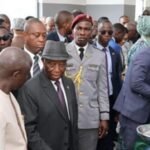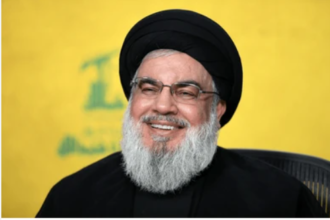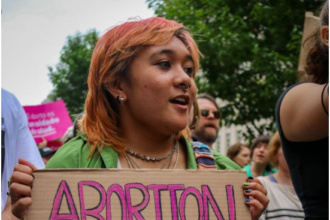The Republic of Sierra Leone is not short of incredible professionals with impeccable education and experience. But the politics of the country can, at times, go and be tribal. So, what happens after President and retired general Julius Maada Bio leaves office after serving two terms in office remains uncleared and daunting.
For the opposition side, it is most likely that former foreign minister who once served as central bank governor and finance minister, and a two times presidential candidate Kamara for the All People’s Congress (APC) party remains no secret.
For the ruling Sierra Leone People’s Party (SLPP), three names stand out: The current vice-president of Sierra Leone is Dr. Mohamed Juldeh Jalloh, the chief cabinet minister of Sierra Leone, Dr. David Moinina Sengeh, and internationally acclaimed Dr. Kandeh Kolleh Yumkella, current Chairman – Presidential Initiative on Climate Change, Renewable Energy & Food Security
According to sources, Jalloh is a political scientist, businessman and a former United Nations official and a senior member of the Sierra Leone People’s Party (SLPP).

The Humble Vice President Dr. Mohamed Juldeh Jalloh
Jalloh earned a bachelor’s degree in political science from Fourah Bay College, a master’s degree in political science from the University of Ibadan, in Ibadan, Nigeria, and doctorate degree from the University of Bordeaux in Bordeaux, France. Jalloh is fluent in several languages including English and French.
A political scientist by profession, Jalloh started working for the United Nations in 2000, when he was a program officer at the United Nations mission in Kosovo. He has also served as a member of the board of senior advisers at the United Nations stabilization mission in Mali and the Sahel region.
He was nominated the presidential running mate of Julius Maada Bio in the Sierra Leonean presidential election of 2018, which they won in a run-off.
Jalloh is a devout Muslim, and was born and raised in Koido, Kono District in eastern Sierra Leone.
According to sources, David Moinina Sengeh is a Sierra Leonean politician who has served as the chief cabinet minister of Sierra Leone after being appointed by President Julius Maada Bio in 2023. He previously served as the minister of basic and senior secondary education and chief innovation officer for the Directorate of Science, Technology and Innovation. He is a TED Senior Fellow.

The Intellectual David Sengeh
a member of the ruling Sierra Leone People’s Party; he was sworn in as vice president on April 4, 2018, after the victory of Jalloh’s and Julius Maada Bio’s presidential ticket in the 2018 presidential election.
He studied biomedical engineering at Harvard University. During his time at Harvard University, he was cofounder of Lebone Solutions, a start-up that developed inexpensive batteries from microbial fuel cells. He was listed in the 2013 Wired magazine Smart List. Sengeh joined Massachusetts Institute of Technology for his postgraduate studies, and worked under the supervision of Hugh Herr.
He used MRI to map amputee’s limbs, then assessed where artificial materials could create pressure points, and used 3D printing to generate new sockets. His prototypes were tested by veterans and amputees from the Boston Marathon bombing.
He won the 2014 Lemelson–MIT Prize for his innovations in healthcare. He was selected as one of Face2Face Africa’s Young Africans Committed to Excellence. He completed his PhD at Massachusetts Institute of Technology in 2016.
Alhaji Dr. Kandeh Kolleh Yumkella is a Sierra Leonean agricultural economist, politician who served as a member of parliament and Chair of the Presidential Initiative on Climate Change, Renewable Energy and Food Security under President Julius Maada Bio’s government. He is a public speaker, who addresses global issues, including poverty reduction, climate change, the Millennium Development Goals, andgreen industry and renewable energy.

The Influential and Internationally Respected Alhaji Dr. Kandeh Kolleh Yumkella
As Minister for Trade, Industry and State Enterprises, he successfully promoted market reforms and signed Sierra Leone’s accession to the African Regional Standards Organization (ARSO)and launched initiatives to promote private sector development, establishment of public-private sector partnership and dialogue mechanisms.
He organized consultative processes between the government and the private sector for discussing constraints and obstacles to private sector growth with support from UNIDO, International Trade Center (ITC), African Project Development Facility (APDF) and UNDP Regional Bureau for Africa (UNDP/RBA).
As co-chair of the Public Enterprise Reform and Divestiture Commission (the privatization commission), supervised an internal review of the privatization council), supervised an internal review of the privatization program and promoted local awareness-building and domestic private sector participation in the program.
He also served as a member of the ministerial-level structural adjustment monitoring committee which provided oversight on policy reforms dealing with rationalization of the civil service workforce, judicial reform, petroleum product pricing and monetization of the rice subsidy.
Yumkella has worked in different high-level policy positions in UNIDO, including as Special Adviser to two previous Directors-General and as Representative and Director of the first UNIDO Regional Office in Nigeria. He is the first from Sub-Saharan Africa to have been appointed to the position. In December 2005, Yumkella was appointed as Director-General of UNIDO, and in December 2009 he was reconfirmed for a second term in office.
Under his leadership, UNIDO was at the forefront in providing solutions to many of the challenges the global community faces today: poverty, jobs, wealth creation and climate change. at UNIDO he gained a reputation for being an effective organizer who implemented policies and projects with impressive drive and focus, thus producing results of great and resplendent caliber. Under his administration UNIDO experienced an unprecedented level of growth in its programmes and has maintained a role as the largest trade-related technical assistance to developing countries in the United Nations System. this assistance has enabled many developing countries to produce and export goods meeting international standards.
Dr Yumkella has extensive specialized executive and advisory experience in program formulation, management and implementation of funds mobilization in fields such as private sector development, public-private sector dialogue and partnerships, small and medium enterprises (SMEs), support systems, capacity-building in industry and business associations, trade capacity-building, agro-industry and rural development.
He also facilitated high-level policy dialogue, consensus-building. advocacy and diplomatic negotiations at conferences of Heads of State, including the African Union, the Conference of African Ministers of Industry (CAMI) and United Nations global conferences.
Dr Yumkella is a strong believer that the most effective way to fight poverty is to strengthen the productive capacities of countries and peoples. he has advocated for pro-poor sustainable industrial and agribusiness development as a means of wealth and job creation and the economic empowerment of the poor. Dr Yumkella is a firm believer in the linkage between “energy poverty” and “income poverty” in developing countries, and promotes the use of renewable energy to improve the productive capacities and welfare of rural communities.
In June 2009, Yumkella was appointed by UN Secretary-General Ban Ki-Moon to chair a new Advisory Group on Energy and Climate Change. The members of the Group, comprising international experts, industry leaders and United Nations system representatives, advise on energy issues critical to the new global climate change deal and beyond.
Yumkella is the chairman of UN-Energy, a United Nations system coordination body dealing with energy-related issues.
He is also a member of the China Council of International Cooperation on Environment and Development (CCICED).









